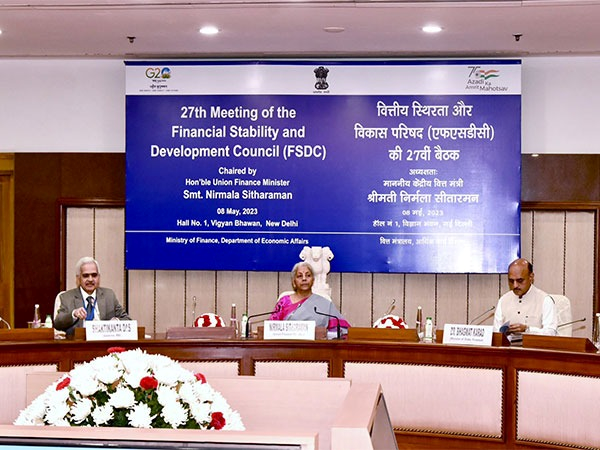FM Nirmala Sitharaman chairs 28th Financial Stability and Development Council (FSDC) meeting
Union Minister for Finance and Corporate Affairs Smt. Nirmala
Sitharaman chaired the 28th Meeting of the Financial Stability
and Development Council (FSDC) in New Delhi, on February 21, 2024.
The FSDC, inter alia, deliberated on issues related to macro
financial stability and India’s preparedness to deal with them. The ongoing
inter-regulatory issues were also discussed to support GIFT IFSC in its
strategic role to become one of the world’s premier international financial
centres and perform its envisioned role of facilitating foreign capital and
financial services for the domestic economy.
The FSDC discussed various issues related to formulation of
strategy for implementing the decisions of the FSDC and the Union Budget
announcements. These, inter alia, included:
·
prescribing uniform KYC
norms, inter-usability of KYC records across the financial sector, and
simplification and digitalisation of the KYC process;
·
kickstarting
fund-raising by social enterprises through social stock exchanges;
·
to arrest the harmful
effects of unauthorised lending through online apps and measures to curb their
further spread.
The FSDC considered the domestic and global macro-financial
situation and emphasised that the members need to maintain constant vigilance
and continue their proactive efforts towards detecting emerging financial
stability risks and taking the necessary measures to maintain the resilience of
the financial sector. The FSDC members also decided to strengthen
inter-regulatory coordination to further develop the financial sector so that
it continues to provide the requisite financial resources for inclusive economic
growth.
The FSDC also took note of the activities undertaken by the FSDC Sub-Committee chaired by the Governor, RBI, and the action taken by members on the previous decisions of the FSDC.
The Press Release can be accessed at: https://pib.gov.in/PressReleasePage.aspx?PRID=2007736
YouTube link for more tax update


Comments
Post a Comment